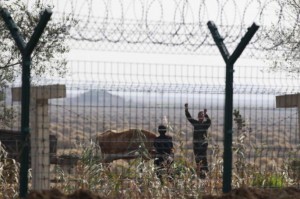Fleeing from dictatorship, hunger, torture and labour camps, North Korean migrants, persecuted in their own country, are far from reaching the end of their suffering, even when they do make it over the border.
Some head towards China, but there, they are considered economic migrants, rather than political refugees, and they are forcefully expelled and repatriated back to North Korea, where their life is at risk: in the eyes of the government, unauthorised departure from North Korea is a serious crime, potentially punishable by execution.
International Law, however, prohibits the forced return of people to their country, should they be at risk of mistreatment. China is therefore in clear violation of human rights. In 2013, nine adolescents were forcefully returned to North Korea.
Human rights organisations urge China to modify its behaviour; however this has had little impact. For example, the Committee on the Rights of the Child has expressly asked China to refrain from forcing unaccompanied children to return to North Korea if they are exposed to danger.

In addition to this, it would seem that with the arrival of the new North Korean President, Kim Jong-un, border controls have been considerably tightened, dissuading numerous children and their families from leaving the country. As a result, the number of escapees has declined from 2700 in 2011 to 1500 in 2012, according to Amnesty International.
Nonetheless, such “distress migration” can be expected to continue. Fortunately, South Korea goes to great lengths to accommodate these people who are in such despair. Solutions at the international level, however, must be found so as to enable young North Koreans to again discover hope for life.
Written by: Marlène Joris Translated by: Jessica Millgate Proofread by : May Buchmuller |

